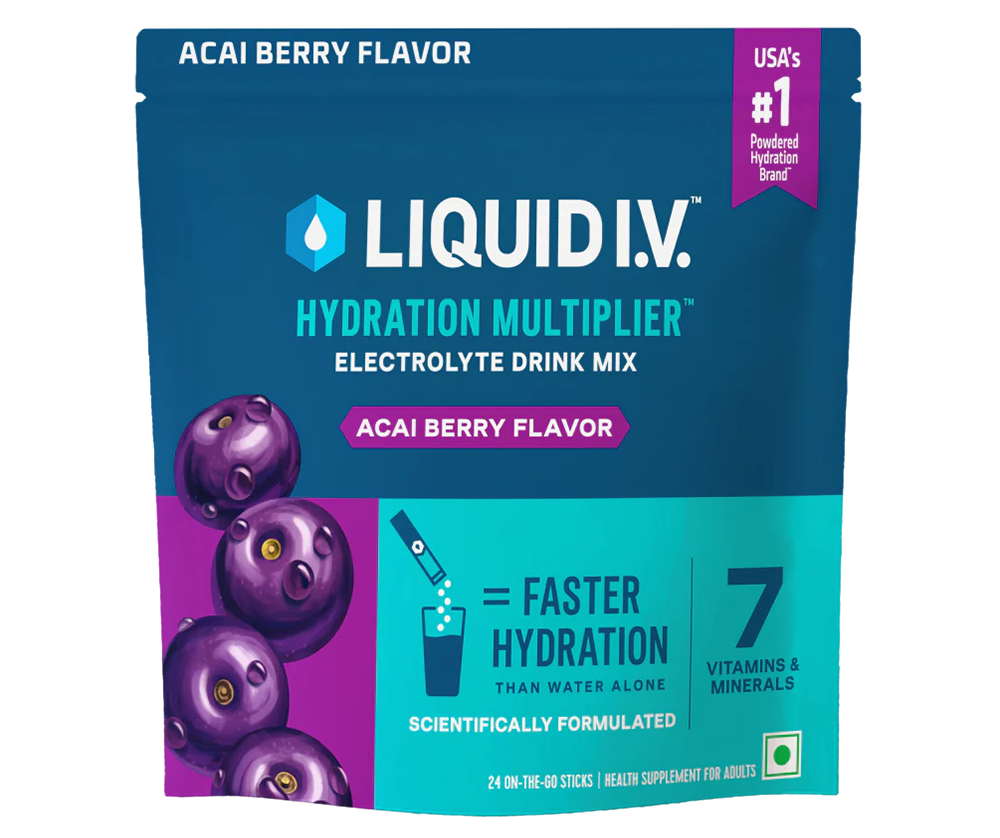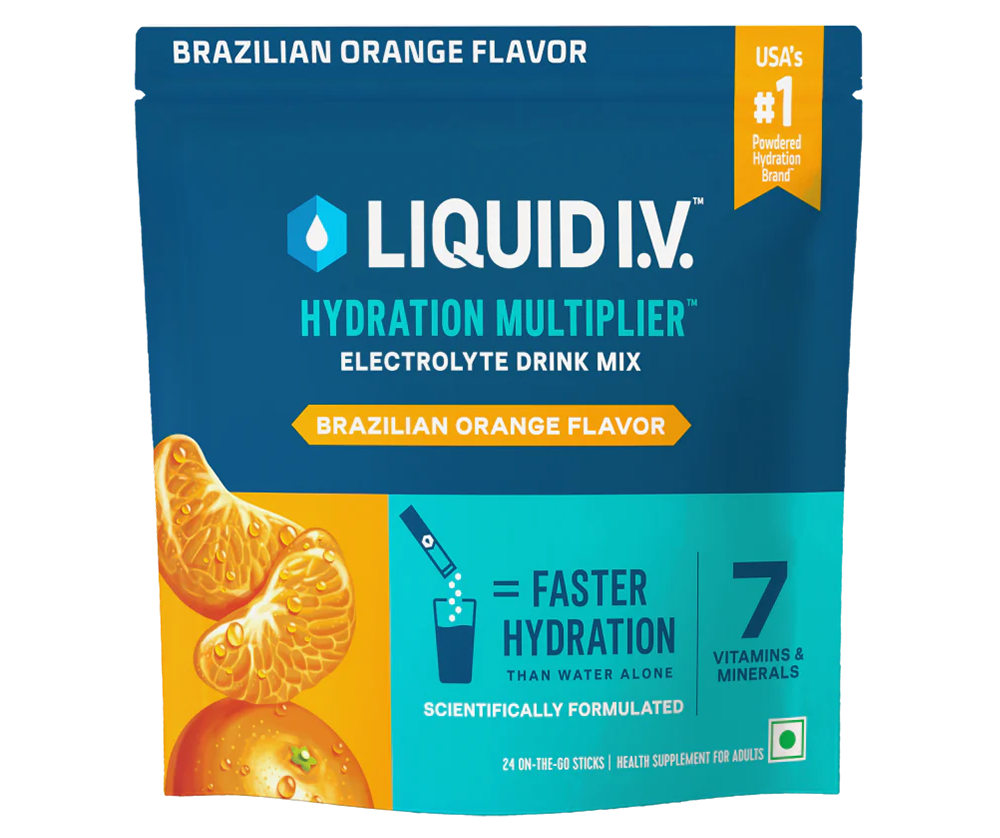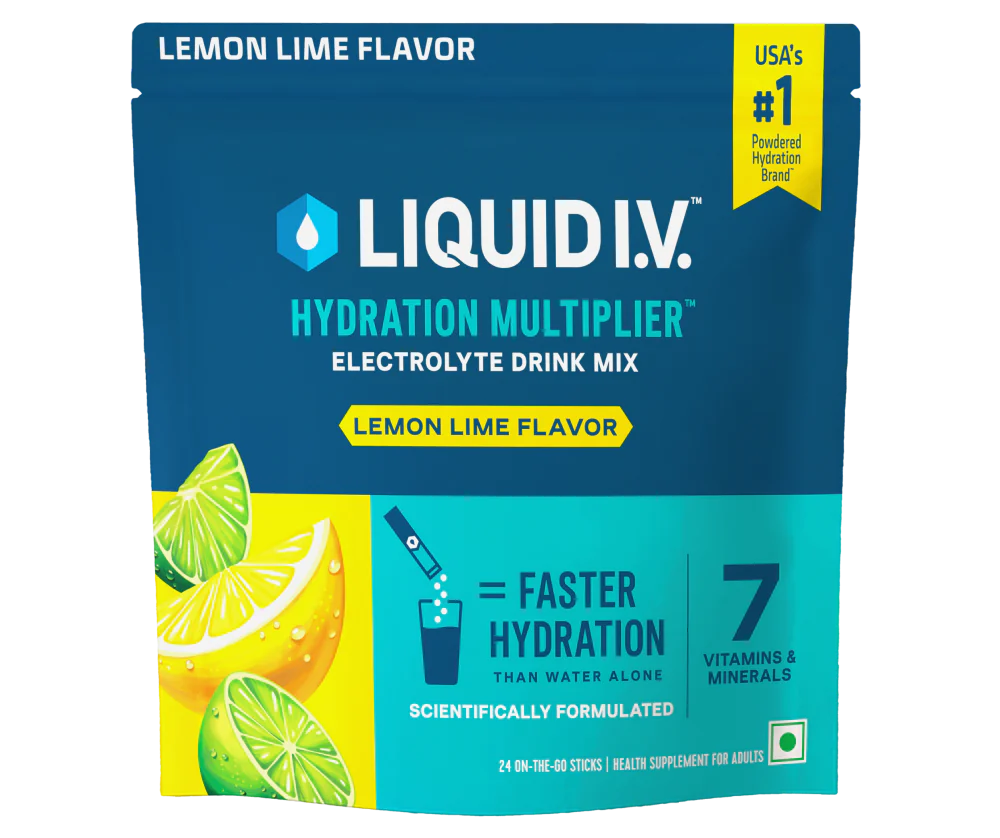6 Simple Tricks To Prevent A Hangover
Planning a night out with friends can be exciting, but the dreaded hangover can be a real buzzkill. From intense headaches to nausea, the thought of a hangover can steal the enjoyment of a night out. However, there are ways to enjoy the best of both worlds—a fantastic party followed by a pleasant morning. While there's no magic cure for a hangover (sadly, time's the only healer), how can you level up and trim down some of those pesky symptoms? [1]
What is a hangover?
Hangovers are a complete buzzkill, messing you up with physical and mental bleh after a fun night of partying. When the blood alcohol level drops to zero, that's when the fun kind of stops and hangover hits. We are talking tiredness, thirst, headaches, dizziness, muscle aches, sensitivity to light & sound, irritability, sweating! Aargh! Everyone's hangover game is a bit different, but it's mostly a rough ride [1] [2].
Important factors, such as the kind and amount of alcohol consumed, the body's tolerance, whether one has eaten or not, and whether one is hydrated, play a significant role in how one feels during a hangover [2]. Knowing these factors will allow us to deal with it better and help us learn how to not get a hangover or at least minimize the wrath.
Hangover Science: The Real Deal
Alcohol can hit you hard in several ways, leading to that dreaded hangover. Here’s the lowdown:
Dehydration and Electrolyte Imbalance
Alcohol makes you pee more by blocking this hormone called ADH, a.k.a. antidiuretic hormone. Normally, ADH helps your kidneys maintain fluid levels, but with impaired ADH function, you end up losing more water and electrolytes from your body. Plus, if you've other signs of hangover, such as sweating, vomiting, or have diarrhoea, you're losing even more water and electrolytes. Mild to moderate dehydration symptoms including thirst, dry mouth, weakness, dizziness, and light headedness are most common during a hangover [3].
Gastro Issues
Alcohol can irritate your stomach, leading to nausea and vomiting [3].
Low Blood Sugar
Drinking can cause your blood sugar to drop, making you feel tired and shaky [3].
Sleep Disruption
Alcohol messes with your sleep cycle, leaving you feeling groggy and out of sync [3].
Top Tips on How to Manage Hangover
Curious about to manage a hangover?
There are loads of hangover remedies out there, starting from folk cures to wild recommendations. But most aren't backed by science. Your best bet is to take it easy. Time is your BFF, as hangover symptoms commonly peace out in 8-24 hours [3]
Drink Water Like a Pro - ideally with electrolytes
Adequate hydration can be helpful in managing few hangover symptoms. Alcohol can cause dehydration in the human body. To manage alcohol induced dehydration, and tackle hangover symptoms such as thirst, dry mouth, dizziness it’s always advisable to hydrate! Add in some electrolytes, to make rehydration faster. [2]
Fuel Up with Food
How can you prevent a hangover? Or perhaps lessen its intensity? The answer lies on your plate.
Consuming carbohydrates can help. Drinking alcohol might reduce blood sugar levels, which could explain some hangover symptoms like fatigue and headaches due to the brain lacking its primary energy source. Additionally, many people neglect to eat while drinking, further decreasing their blood sugar. Having toast and juice can help restore these levels gently [4]
Sip Smart
Keeping an eye on your alcohol intake can be a game-changer. Stick to small, nonintoxicating amounts, and you'll dodge those dreaded hangover symptoms. Even if you're aiming for a bit of a buzz, moderate the intake! drinking less means fewer hangovers compared to going all out. Plus, low-alcohol or nonalcoholic drinks are your best friends in the hangover-free zone. Cheers to smart sipping!
Pick Your Poison
Different alcoholic drinks have varying levels of alcohol in them. Darker liquors (like whiskey and brandy) tend to contain higher levels of congeners – by products obtained during the fermentation process, that make hangovers worse. Making a smarter choice for one’s alcohol tolerance will help in handling oneself during a night-out.
Snooze to the rescue!
While alcohol tends to have a sedative effect on the consumer, it actually messes with our sleep, making us feel more fatigued the next morning. However, sleep and rest will help us recover and reduce the fatigue due to sleep deprivation [3].
Quick Fixes
Other tricks might help reduce hangover intensity, though they haven't been thoroughly studied. Eating fruits, fruit juices, or fructose-packed snacks can help. Bland carbs like toast or crackers can counter low blood sugar and possibly relieve nausea. Getting enough sleep can ease fatigue and drinking nonalcoholic beverages during and after drinking can reduce dehydration [3].
Debunking Myths
Caffeine to the Rescue?
Many people swear by coffee to fight off hangover fatigue, but science isn't backing this up. It's more of a comforting tradition than a proven cure [3].
Hair of the Dog?
The idea that drinking more alcohol can cure a hangover is a popular myth. In reality, it's best to steer clear of more booze when you're already feeling rough. Drinking more will just add to the alcohol's toxicity and might lead to even more drinking. Instead, focus on rehydrating with water and getting some rest to help your body recover [3].
The Golden Rule: Know Your Limits
The most effective way on how to avoid a hangover is to drink in moderation. Everyone’s tolerance is different, so listening to our body and knowing when to stop is key to responsible drinking [1]. A great evening spent with intention is an evening well spent.
Frequently Asked Questions:
What drink kills a hangover?
There is no miracle drink for hangovers. Since alcohol is a dehydrating beverage, good hydration helps with hangover symptoms [4]. Electrolyte rich drinks or fresh coconut water can help rehydrate faster.
How long do hangovers last?
Hangovers can last anywhere from a few hours to up to 8-24 hours, depending on the amount of alcohol consumed and individual factors like alcohol tolerance, metabolism and hydration levels [3] [1].
Are hydration drinks good at preventing hangovers?
Yes! The hydration drinks can be our friend. It can help trim down some hangover symptoms especially ones linked with mild to moderate dehydration.
Conclusion
Stressing about how to manage hangovers? Watching your alcohol intake -both volume and type of alcohol can be a game-changer. Right hydration, especially by drinks with functional levels of electrolytes (e.g., sodium, potassium can provide some relief! By eating wisely, choosing your drinks smartly, you can significantly reduce the chances of waking up with unpleasant symptoms. Moderation is your BFF, and knowing your limits means you can party hard without the dreaded hangover blues. So, the next time you plan a party night, remember these tips: party smart, stay hydrated, and savor every moment.
Cheers to feeling awesome the next day!





